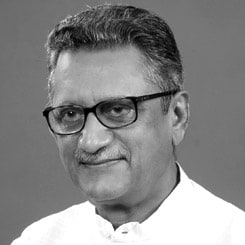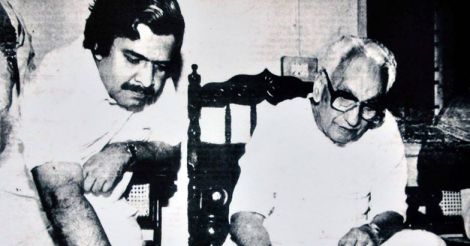Kerala is once again getting ready for the quinquennial celebration of electing a new state government. The usual rituals associated with it – yatras, agitations, corruption charges and violence – have already begun.
Fortunately for the politicians, public memory is proverbially short. We the public react as though we are dealing with a new set of political leaders and we are being given a fresh opportunity to choose between two very different dreams about Kerala’s future.
We forget that we have seen all these before, not once but several times. Has anything changed?
Are we being asked to choose between two new dreams in line with the changes happening elsewhere in the world? A perceptive observer cannot escape the conclusion that Kerala has been trapped in a time warp for nearly six decades now.
When I was in the process of settling down in Kerala after demitting office as member of Union Public Service Commission, the V.S. Achuthanandan government was nearing the completion of its term.
With UDF making gains in Parliament and local body elections, the air was rife with expectations of a change of government.
I remember running into Oommen Chandy at a social function one of those days during the run up to the state assembly election.
Like other impractical returnees to the home state, I too thought it my duty to offer some suggestions in the light of my experience in the Central Government as deputy secretary, director, joint secretary, additional secretary, special secretary and secretary in various ministries and my exposure.
As is his wont, Oommen Chandy listened to me with rapt attention and then asked me if I had any suggestion to curb graft.
Notwithstanding all the high decibel accusations heard against him these days, I believe Oommen Chandy is at least as honest as and far more compassionate than Achuthanandan.
Yet, he was unable to take any significant step to curb corruption in public life because of the compulsions of coalition politics and the razer-thin majority of UDF in the Assembly.
In spite of his high voltage anti-corruption crusades as Opposition Leader and Chief Minister, VS, who had the brute majority to carry through any legislation he wanted, also did absolutely nothing to create a fully independent and credible anti-corruption institution with its own investigative agency.
The inability of both in this regard has to be traced to the peculiar coalition politics that evolved in Kerala since 1967.
Late Marxist doyen EMS Namboodiripad was the first to recognise that the split in Congress, along with the formation of Kerala Congress, was a game-changer.
Though Communist Party of India had split into CPI(M) and CPI by then, EMS kept CPI as an ally. He did not hesitate to include all sorts of splinter parties to the alliance.
The new alliance swept the polls in 1967 reducing both National Congress and Kerala Congress to single digits.
This election saw the emergence of K. Karunakaran as the leader of the Congress Legislature Party as Alexander Parambithara, the senior most among the nine MLAs of the party, was unwilling to take up the responsibility of leading this tiny legislative group.
In political acumen, Karunakaran was more than a match for EMS.
Fortunately for Karunakaran, circumstances also conspired to help him.
In the wake of the vertical split in the Congress at the national level, Indira Gandhi made a sharp leftward tilt.
The Soviet Communist Party with whom Indira Gandhi got aligned internationally persuaded the leadership of CPI to support Indira Gandhi’s government and party.
The growing tension between the communist parties of Soviet Union and China widened the rift between CPI(M) and CPI in India with the latter leaving the EMS-led coalition and aligning with the Indira Gandhi-led Congress in Kerala.
The Congress-CPI alliance managed to install a new government under veteran CPI leader C. Achutha Menon, who is widely recognised as the best Chief Minister Kerala ever had.
Thus began Kerala’s binary politics with National Congress as the anchor of one front and CPM, the anchor of the other front.
Though the alliance partners of the two fronts switch sides often, Keralites have been left to make do with the limited choice of opting for the rule of either of these fronts, with only marginal differences in their programmes, at five yearly intervals.
In the run-up to another assembly election, the scenario remains the same. We have the unenviable task of choosing between Tweedledum and Tweedledee.
(The author is a former Civil Aviation Secretary and former member, Union Public Service Commission)

























 (Right) K. Karunakaran with Ramesh Chennithala. File photo
(Right) K. Karunakaran with Ramesh Chennithala. File photo
Disclaimer
The comments posted here/below/in the given space are not on behalf of Manorama. The person posting the comment will be in sole ownership of its responsibility. According to the central government's IT rules, obscene or offensive statement made against a person, religion, community or nation is a punishable offense, and legal action would be taken against people who indulge in such activities.